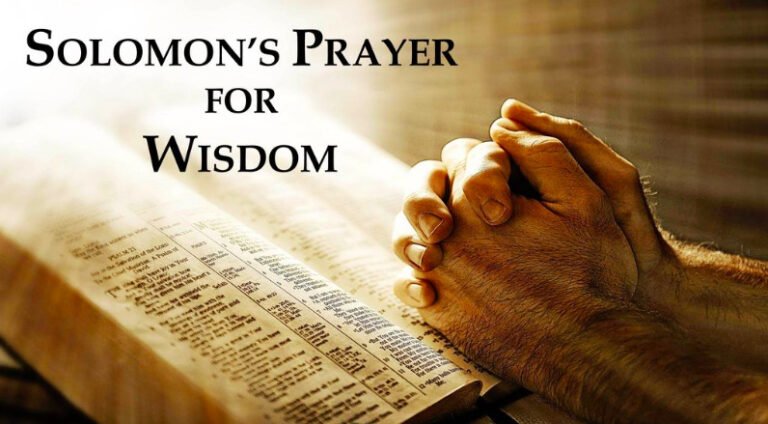Prayer in Difficult Times – The Righteous will live by faith

8 minutes to read
Have you ever asked questions like, “Why would a good God allow wicked people to prosper!?” or “Why me, Lord!?” Well, the words of Habakkuk are very similar. Even though it was written more than 2500 years ago, the book of Habakkuk is relevant to our lives, dealing with issues and problems we face today.
Habakkuk was probably written about 640–615 B.C., just before the fall of Assyria and the rise of Babylon (Chaldea). God had used Assyria to punish Israel (722 B.C.); now he would use Babylon to punish Assyria and Judah. This prophecy would be fulfilled several decades after Habakkuk, in 586 B.C. The “theme question” of Habakkuk is: How can God use a wicked nation such as Babylon for his divine purpose? And the question of why God does not act against evil in the world is raised from the outset as the pivotal issue of the book.
O Lord, how long shall I cry for help,
(Habakkuk 1:2-3)
and you will not hear?
Or cry to you “Violence!”
and you will not save?
Why do you make me see iniquity,
and why do you idly look at wrong?
Destruction and violence are before me;
strife and contention arise.
Habakkuk’s conversation with God seems like a complaint session, in which he asks the question, “Why?” We all tend to ask “Why? ”when we go through difficult situations. “Why am I being made to go through this?” Or “Why do I have it that way?” Why? Why? Why? Here we find a man who wasn’t afraid to ask God, “Why?”
Prayer is never about asking God to submit his awesome power to our will and plan; rather prayer is an act of personal submission to the always-right will of God.
So often we as Christians think we need to have it all together to come to God. But Habakkuk shows us that you don’t have to have it all together. Habakkuk was a prophet of God and you would think that a prophet would have life under control, yet what we find is the genuine prayer of a man crying out to his Lord for justice. From the situation described by Habakkuk, it seems like everything is going wrong, and God seems to be doing nothing about it. So, he essentially asks, “Why am I destined to be here in a time like this? Things were so much better in the times of my ancestors! Why me? But at the very same time, he says, “My God, my holy one we will not die” (Hab. 1:12). We see that he is extraordinarily honest. Habakkuk’s prayer was so raw, that he told God what he felt: that God is idle, overlooking what’s going on and perhaps even slumbering.
How often have you and I felt that way in various circumstances? But do we talk to God with such honesty? Our burdens need not push us away from God; instead, they ought to draw us to Him. Crying out to God and lamenting in times of pain should be a Christian’s natural inclination. In fact, the best thing we can do is to cry out to God who knows all things.
Secondly, we learn that suffering and pain are part of the believer’s life, which means we shouldn’t shy away from talking to God about our sicknesses, weaknesses, relational issues and pains. The sad thing about many Christians today is that they think that God is only a gift giver and that only good things come from God, not realizing that even suffering can be a good thing that God uses to bring us back to Him, to refine us like gold in order to test the genuineness of our faith (1 Pet. 3:7) and that God’s power is made perfect in our weaknesses (2 Cor. 12:9). So, we can pray to God about our weaknesses.
Thirdly, as we read through the book, we see Habakkuk waiting on the Lord.
I will take my stand at my watchpost
(Habakkuk 2:1)
and station myself on the tower,
and look out to see what he will say to me,
and what I will answer concerning my complaint.
Something that is lacking in our times is patience. We all want instant, easy solutions, and people expect God’s timing to line up with their expectations. However, when the Bible speaks of patience, particularly as part of the fruit of the Spirit, and as one of the characteristics of love, it speaks of it as a virtue that goes far beyond the mere ability to wait for some future gain. It involves more than just waiting on God’s perfect timing. Patience also focuses on interpersonal relationships. It is the patience of longsuffering and of forbearing in the midst of personal injury. This is the most difficult patience of all. When we are injured by others, we long for vindication, a vindication that is speedy. And so when we pray, we should remember that prayer is never about asking God to submit his awesome power to our will and plan; rather prayer is an act of personal submission to the always-right will of God.
Crying out to God and lamenting in times of pain should be a Christian’s natural inclination.
But practically speaking how do we as Christians wait upon the Lord? We wait upon the Lord by living in faith (Hab. 2:4), remembering what God has done for us through His Word when we pray. The various circumstances every Christian goes through in life may seem to be unique but God’s Word demonstrates (as it did for Habakkuk in Hab. 3) to us quite clearly, how His people endured difficult times.
O LORD, I have heard the report of you,
(Habakkuk 3:2)
and your work, O LORD, do I fear.
In the midst of the years revive it;
in the midst of the years make it known;
in wrath remember mercy.
Long-suffering patience is not easy. It is under attack every day. Such trials can eat away at our love, our hope, and our faith. This erosion can leave us broken and embittered. Therefore, we should look to the manifold witnesses that Scripture provides of the people of God who endured such trials and tribulations. In Rom. 1:17, Paul cites Hab. 2:4 in order to set the stage for his exposition on the doctrine of justification by faith alone. Justification by faith alone means that we are justified in the sight of God, not by our own accomplishments or works but by trusting in Christ alone and His righteousness alone for our redemption. So to live by faith ultimately means to live trusting in Christ for our salvation.
At the end of the book of Habakkuk, we learn of a prophet who has become resolved to endure pain. In the closing verses of this book, the prophet sings this song:
Though the fig tree does not bud
(Habakkuk 3:17-18)
and there are no grapes on the vines,
though the olive crop fails
and the fields produce no food,
though there are no sheep in the pen
and no cattle in the stalls,
yet I will rejoice in the Lord,
I will be joyful in God my Saviour.
These are statements of incredible trust and faith. Habakkuk has truly come to that position of faith that God had shown him: “the just will live by faith.” The book begins with a prophet who is confused about what God was doing or not doing, but God answers him in a profound and unexpected way. So what brought him from that confused state to complete faith in God? It was the change that came about by conversing with God, by praying and having full confidence in what God has done and is doing.
We learn from Habakkuk that Prayer is speaking to God. And so, may we go to God with humility, openness and complete honesty, knowing that we do not have it all together. We can know that our weaknesses may be God’s way to draw us back to Him, and that we as Christians need to be still and wait patiently for Him for the righteous will live by faith even though it seems like trouble is on the way. We pray, rejoicing in what the Lord has done for us in Christ and like Habakkuk with fear and reverence we wait upon the Lord.




